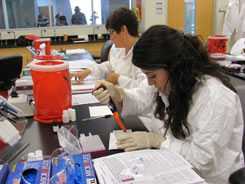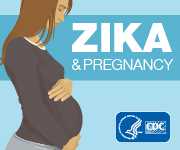Laboratory Activities

Lab technicians participate in a dengue diagnostic workshop held in Arizona, October 2012. Photo credit: Sonia Montiel, CDC
CDC provides training opportunities to BIDS and other binational border health partners in the U.S. and Mexico to strengthen laboratory capacity by improving diagnostics and molecular techniques, implementing quality control and proficiency programs, and providing biosafety and biosecurity trainings to optimize laboratory response to public health events.
Since 1999, CDC has provided over 40 trainings to BIDS and binational border health partners on a range of topics, including viral hepatitis, measles, rubella, dengue, West Nile virus, influenza and other respiratory diseases, campylobacteriosis, rickettsial diseases, rabies, and lab database management, along with diagnostics and molecular techniques for diseases of interest such as foodborne illness. Trainings occur at CDC facilities, or CDC lab specialists will travel to field sites to conduct the course. CDC is also increasing capacity to offer laboratory trainings via the web.
BIDS laboratory accomplishments:
- BIDS-led trainings contributed to partner standardization of laboratory procedures and protocols to increase consistency and quality of laboratory data.
- BIDS linked Mexico to the Laboratory Response Network.
- Trainings have improved the capacity for viral hepatitis training in Mexico border cities.
- Through proficiency testing panels, BIDS enables laboratories to assess their performance in conducting virology and bacteriology tests.
- BIDS facilitates the transportation of laboratory specimens and reagents between the United States and Mexico.
- Page last reviewed: June 9, 2014
- Page last updated: June 9, 2014
- Content source:




 ShareCompartir
ShareCompartir